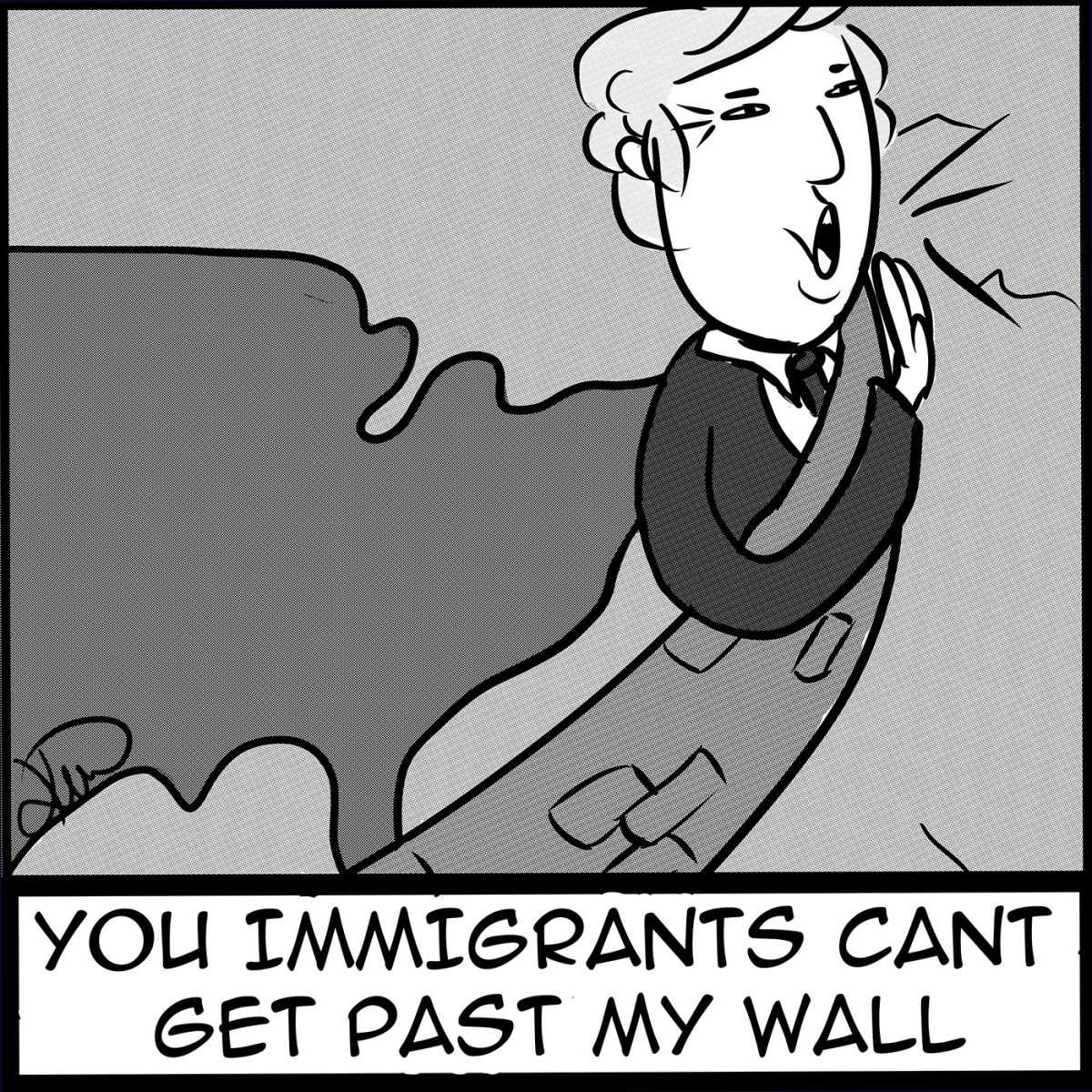Studying abroad in Spain this summer, I was looking forward to a reprieve from the mudslinging U.S. election and, most importantly, a break from Donald Trump with his outlandish and hateful comments. Yet, my first day abroad, as I picked up Spain’s national paper, El Pais, Trump screamed back at me, his orange getup blazing from the paper’s front page.
My blissful search for anything other than a constant fueling of Trump news was immediately shattered as I realized something I’d never truly grasped before. As the whole world watches the U.S. presidential elections, Trump’s prominence dominates our national image. Abroad, America is increasingly seen as “Trump-land.”
In Spain, whenever I meet someone new and they find out I am from the United States, I am immediately subjected to a series of questions about Trump. I recently finished a dinnertime conversation with my host family where I tried to plead with them, in my sputtering, third-grade level Spanish that not everyone in America supports Trump’s radical beliefs. My first class saw me tell my professor that “No, I, along with most Americans, actually like Muslims and want them in our country.”
Needless to say, I’ve quickly learned how to say I don’t like Trump, and I think his ideas are very bad for my country. No me gusta Donald Trump y yo creo que sus ideas son muy malos para mi país.
Yet, despite my effort, along with the many efforts from other Americans abroad, the months of having Trump being the most well-known name from America have done their damage. For years, the United States was seen by the world as a strong nation promoting freedom and trying to help out those in need, but now we’re increasingly seen as a xenophobic nation that wants to ban all Muslims, build a wall and spread prejudicial messages. Based on abundant media coverage and the world’s love to hear the latest crazy thing Trump said, his beliefs are increasingly spread worldwide and America’s image is increasingly tarnished.
Only a minority of Americans supports Trump; the most recent polls find Trump viewed as unfavorable by 58 percent of Americans. Yet, they are the ones creating this disturbing national image.
Abroad, even more so, the world seems decidedly against Trump. The British, French and Israeli prime ministers have all denounced his ban on Muslims while a former Mexican president, Saudi Arabian prince and Pope Francis have all condemned Trump’s campaign.
Even more convincing, when Marine Le Pen, the leader of France’s far-right National Front party which is increasingly compared to Trump for its radical stance on immigration, was asked about the Muslim ban, she replied “Seriously, have you ever heard me say something like that? I defend all the French people in France, regardless of their origin, regardless of their religion.”
Today, it’s embarrassing to be an American abroad. As Trump’s influence in America’s politics continues to grow, so too grows disdain for our country from abroad. Now as the presumptive Republican nominee, our nation’s world image is tied to Donald Trump for at least six months — I don’t want to imagine what I’ll have to convince Spaniards most Americans don’t support next.















